Shampoo bars are a new trend in the hair care industry that's rapidly gaining popularity. These bars are a solid form of shampoo that comes in a wide variety of scents and formulations to cater to different hair types and preferences.
Not only are they environmentally friendly and cost-effective, shampoo bars also offer numerous benefits over traditional liquid shampoos. Unlike liquid shampoos that come in plastic bottles, shampoo bars come in minimal packaging or even zero-waste packaging, making them a more sustainable option.
In this guide, we will explore the world of shampoo bars and their benefits in greater detail. We will take a closer look at how shampoo bars work, their ingredients, and how to choose the best shampoo bar for your hair type and needs.
Whether you're a loyal user or just curious about the hype around shampoo bars, this guide aims to answer all your questions and help you make an informed decision about adding shampoo bars to your hair care routine. So, let's dive in!
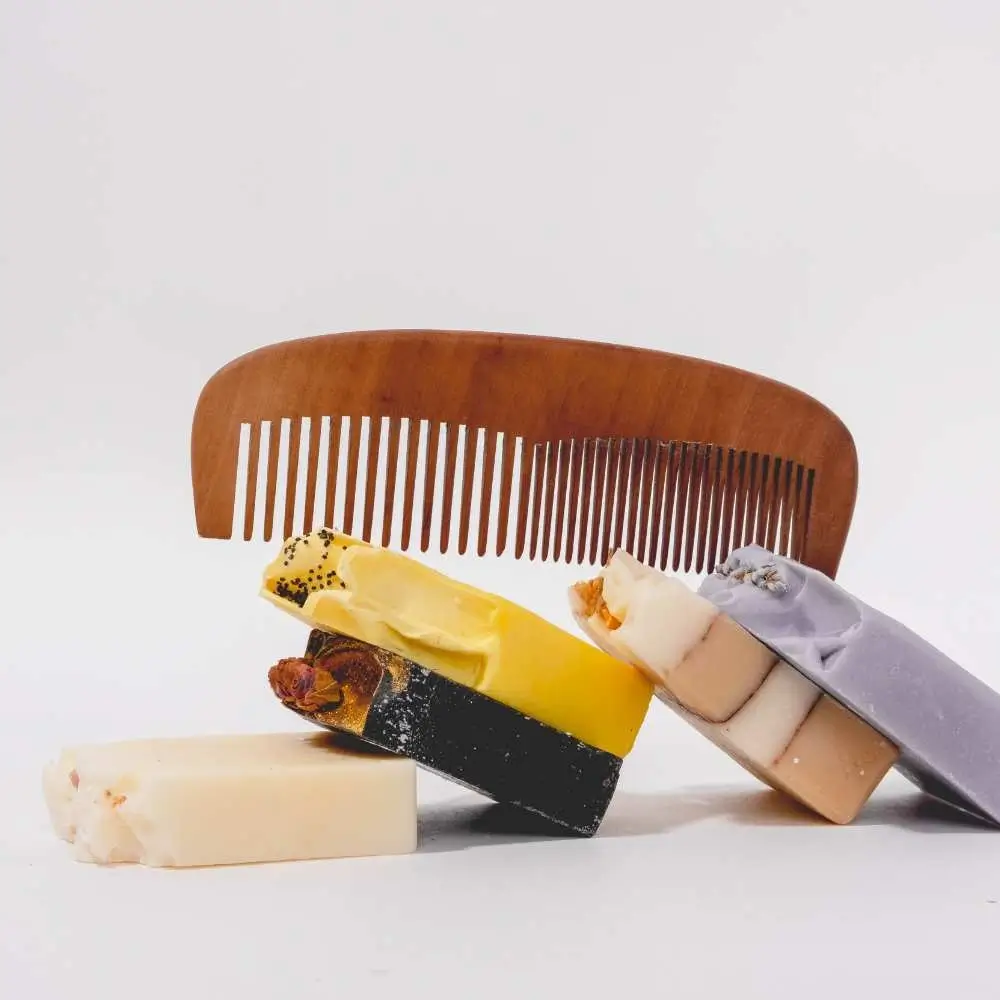
What are Shampoo Bars?
Shampoo bars are solid bars that function as liquid shampoo. They are made from a combination of natural ingredients and come in a range of scents and formulations that cater to different hair types and skincare concerns.
One of the most noticeable differences between shampoo bars and traditional liquid shampoos is their form. Shampoo bars come in a solid form, making them more compact and easier to transport compared to bulky bottles of liquid shampoo. Additionally, because shampoo bars have no plastic packaging or minimal packaging, they are better for the environment.
The ingredients in shampoo bars are typically natural and include plant oils, butter, and essential oils. Some common ingredients in shampoo bars include coconut oil, shea butter, jojoba oil, and castor oil. These natural ingredients have various benefits for hair, such as providing moisture, replenishing oils, and improving scalp health.
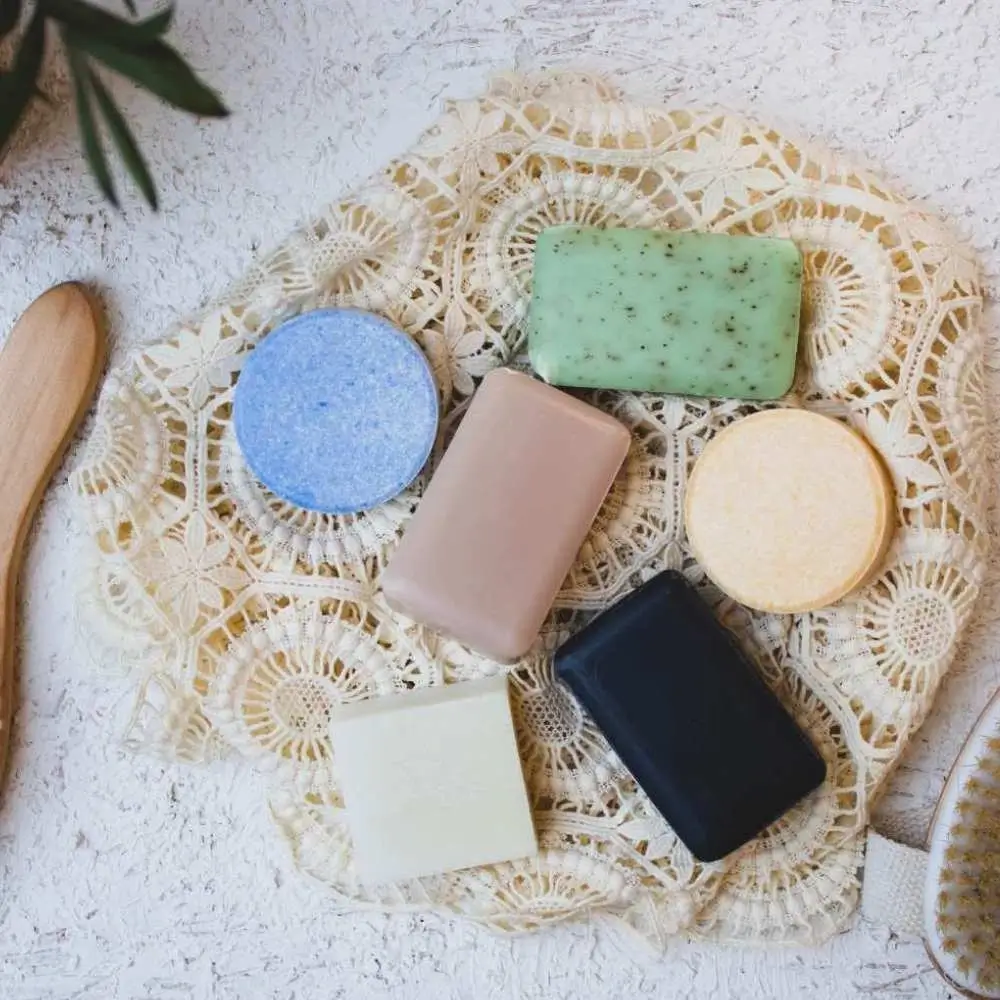
Unlike traditional liquid shampoos that can contain harsh chemicals, shampoo bars are gentler on the hair and scalp. They are typically free from sulfates, parabens, and other toxic ingredients, making them a healthier alternative for hair care.
In summary, shampoo bars are a solid form of shampoo that differ from traditional liquid shampoos in their form and natural ingredients. By using natural ingredients, shampoo bars can provide numerous benefits for hair while also being better for the environment.
Benefits of Using Shampoo Bars
Shampoo bars have numerous benefits that make them an excellent alternative to traditional liquid shampoo. Here are some of the most significant benefits of using shampoo bars:
Environmental Benefits
Shampoo bars are a more sustainable option compared to traditional liquid shampoo. Because they come in minimal or zero-waste packaging, they generate less waste. Additionally, shampoo bars require less energy to produce and transport compared to liquid shampoo, which often comes in bulky plastic bottles.
Economical Benefits
Shampoo bars are a cost-effective alternative to liquid shampoo. A single shampoo bar can last up to three times longer than a bottle of liquid shampoo, making them a more economical option in the long run.
Health Benefits
Shampoo bars are typically made from natural ingredients that are gentler on the hair and scalp compared to liquid shampoos containing harsh chemicals. This makes shampoo bars a healthier choice for people with sensitive skin or allergies.
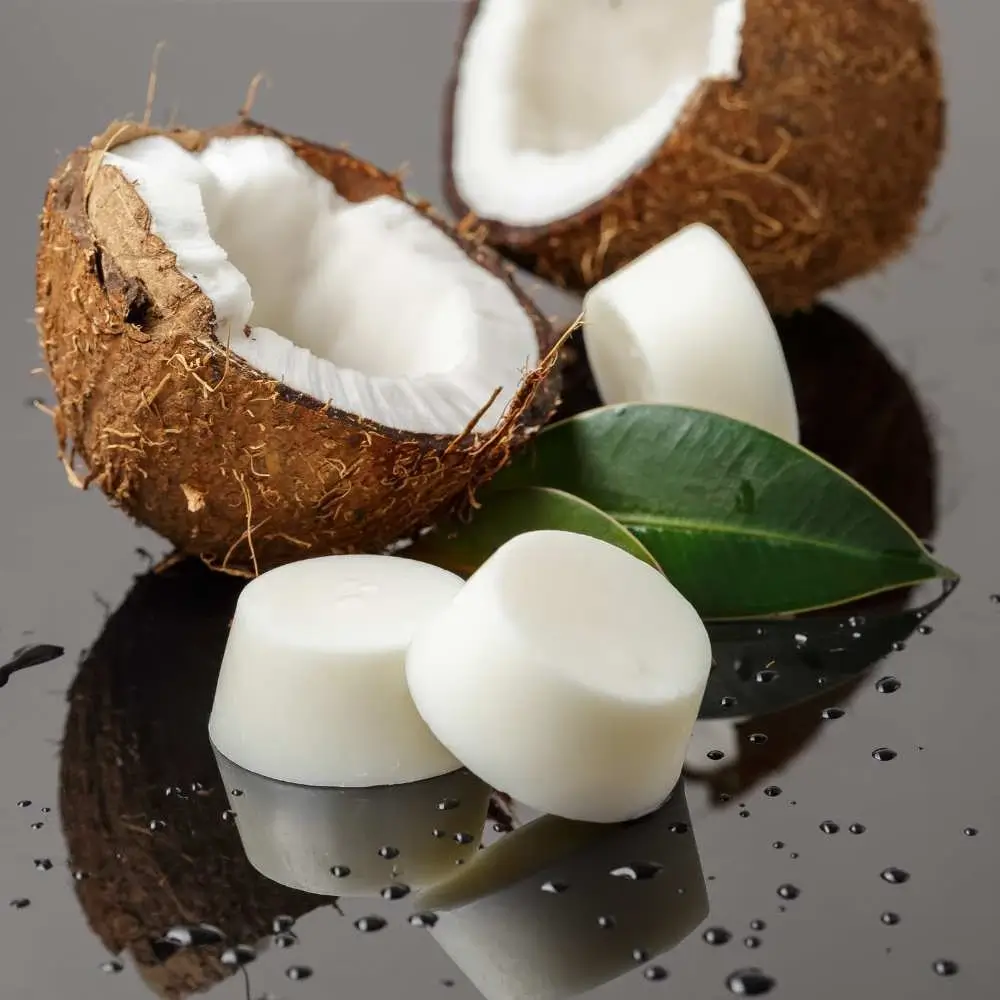
Suitable for Different Hair Types
Shampoo bars come in a range of formulations that cater to specific hair types and conditions. For instance, people with dry hair may benefit from using a shampoo bar with moisturizing ingredients such as coconut oil or shea butter, while people with fine and oily hair may benefit from using a shampoo bar with cleansing ingredients such as tea tree oil or witch hazel.
Shampoo bars can also help those who suffer from dandruff or other scalp conditions. Ingredients such as neem oil and lavender essential oil have antimicrobial and anti-inflammatory properties, making them ideal for treating scalp conditions.
Shampoo bars provide multiple benefits, including environmental, economic, and health-related benefits. They are suitable for different hair types and conditions and are made from natural ingredients, making them a great alternative to traditional liquid shampoos.

How to Choose the Right Shampoo Bar
Choosing the right shampoo bar for your hair type and needs might seem daunting at first, but with some tips and a little experimentation, finding the perfect shampoo bar can be a fun and rewarding experience. Here are some things to consider when choosing a shampoo bar:
Hair Type and Needs
When it comes to picking a shampoo bar, it’s essential to consider your hair type and needs. For instance, people with dry hair should look for shampoo bars that contain hydrating ingredients, such as shea butter or argan oil, whereas people with oily hair may benefit from a shampoo bar with clarifying ingredients such as apple cider vinegar or lemon.
Reading Labels and Ingredient Lists
Reading the label and ingredient list of a shampoo bar is critical to selecting the right one. Look for bars with natural ingredients and avoid additives such as sulfates, parabens, and synthetic fragrances, which can strip the scalp of natural oils and irritate the skin.
Fragrance
Shampoo bars come in a wide variety of fragrances, making it easy to pick one that appeals to your senses. However, some fragrances can irritate the skin, so it’s important to choose a scent that’s gentle on your skin and hair.
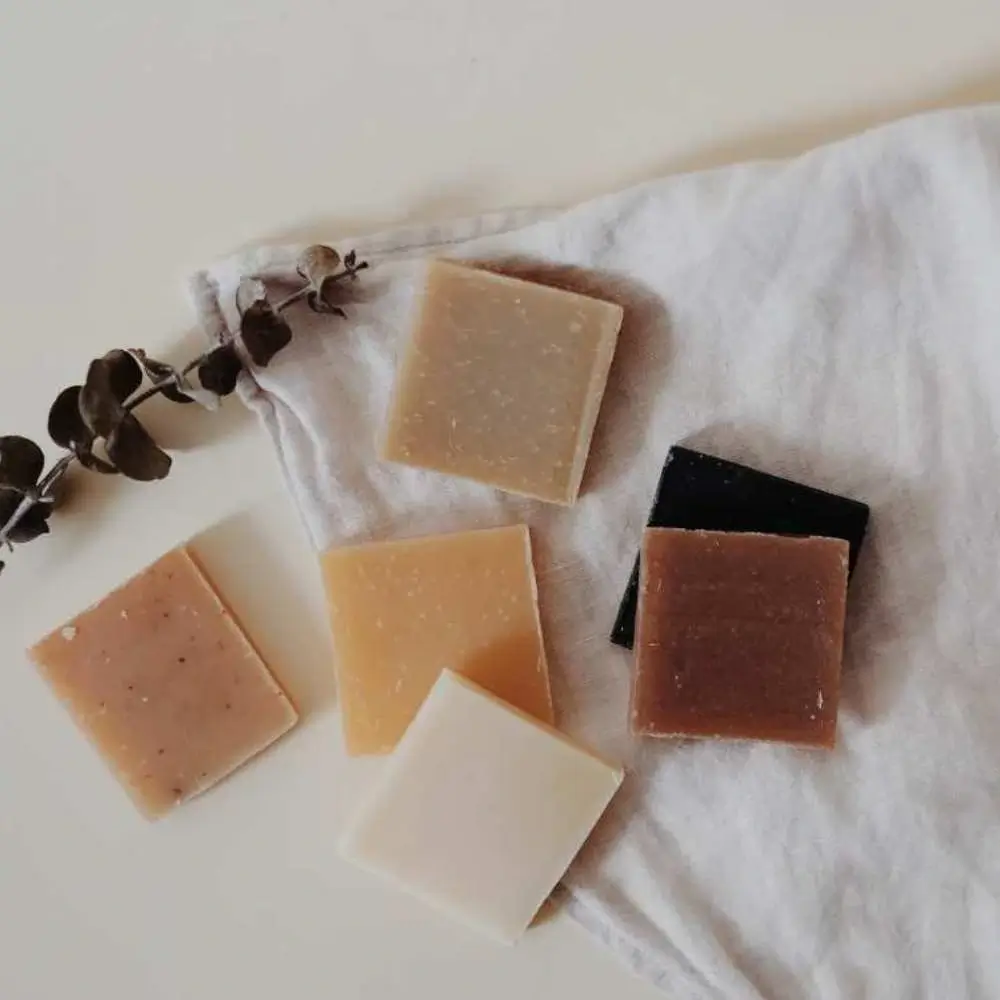
Packaging
One of the significant benefits of using a shampoo bar is the minimal waste it creates. Consider choosing a shampoo bar with compostable or recyclable packaging, or one that comes without any packaging at all. Some brands offer shampoo bars in tins or metal containers that can be reused.
Price
Shampoo bars are a cost-effective alternative to bottled shampoo, but prices can vary depending on the brand, ingredients used, and size of the bar. It might take some experimentation to find the perfect bar for your hair type and needs, so start with small bars to try them out before committing to larger purchases.
Choosing the right shampoo bar requires taking into account your hair type and needs, reading labels and ingredient lists, selecting the fragrances that don’t irritate your skin, and considering packaging options and pricing. With these tips in mind, you can find a shampoo bar that's not only right for your hair but also helps support a sustainable lifestyle.
How to Use Shampoo Bars
Using a shampoo bar may seem a bit intimidating at first, but it's actually an easy process to master. Here's how to use a shampoo bar in a few simple steps:
- Wet your hair and the shampoo bar. Run the shampoo bar under the water to wet it thoroughly.
- Lather the shampoo bar in your hands. Rub the bar between your palms to create a lather. Alternatively, you can rub the bar directly onto your scalp and hair.
- Massage the lather into your scalp and hair. Use your fingertips to massage the lather into your hair and scalp, working from the roots to the tips.
- Rinse your hair thoroughly. Rinse your hair with warm water until all the shampoo is removed.
- Repeat if necessary. Depending on how much product buildup you have, you may need to repeat the process to get your hair completely clean.
- Condition your hair (optional). If your hair tends to be dry, you may want to follow up with a conditioner to keep it moisturized.

Tips for Using Shampoo Bars
Here are some tips to help you get the most out of using a shampoo bar:
- Use warm water. Warm water creates a better lather and helps your hair absorb the shampoo.
- Store your bar properly. Don't let your shampoo bar sit in standing water. Store it in a dry place, like a soap dish with drainage holes.
- Use a vinegar rinse. If you have hard water, your hair might feel sticky and unmanageable after washing with shampoo bars. Use a vinegar rinse once a week to help remove buildup.
- Experiment with different brands and formulations. It may take some trial and error to find the right shampoo bar for your hair type and needs. Don't be afraid to try different brands and formulations until you find the perfect fit.
By following these tips, you'll be able to use shampoo bars effectively and enjoy all the benefits they have to offer.
Common Myths and Misconceptions About Shampoo Bars
As shampoo bars become increasingly popular, it's common to hear myths and misconceptions about them. Let's address some of these myths and explain the truth behind them:
Myth 1: Shampoo Bars Leave Residue on Hair
Some people believe that shampoo bars don't rinse out well and leave a residue on the hair. The truth is that shampoo bars, when used correctly, rinse out just as well as liquid shampoo. It's important to ensure that you rinse your hair thoroughly to avoid any buildup.
Myth 2: Shampoo Bars Are Not for Oily Hair
Another common misconception is that shampoo bars are not suitable for oily hair. This is not true - there are shampoo bars that contain ingredients such as tea tree oil or witch hazel that are specifically formulated to remove excess oil from the hair.
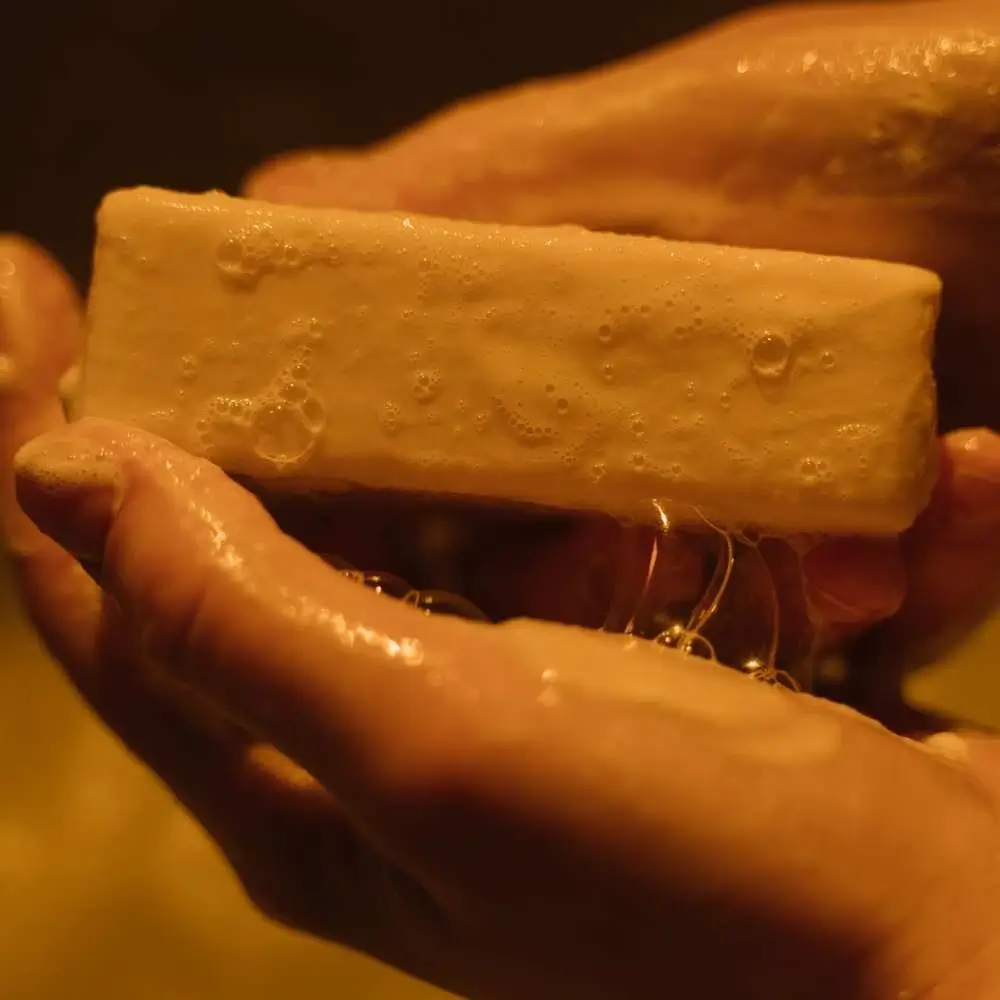
Myth 3: Shampoo Bars Don't Lather Well
Some people think that shampoo bars don't lather as well as liquid shampoo. The truth is that with proper use, shampoo bars can lather just as effectively as liquid shampoo. It's important to wet your hair and the bar thoroughly and work up a rich lather that covers your entire scalp.
Myth 4: Shampoo Bars Are Expensive
While some shampoo bars may be more expensive than traditional liquid shampoos, they can be a cost-effective option in the long run. Shampoo bars last longer and require less packaging, making them a better investment overall.
Myth 5: Shampoo Bars Don't Work on All Hair Types
Another myth is that shampoo bars are not effective on all hair types, such as curly hair or chemically-treated hair. The truth is that there are shampoo bars that are formulated for specific hair types, textures, and conditions. It's important to choose a bar that is appropriate for your hair type and to experiment with different brands and formulations until you find the right one for you.
Shampoo bars are a safe and effective alternative to traditional liquid shampoo, and it's important to understand the facts behind the myths and misconceptions. With the right shampoo bar for your hair type and needs, you can enjoy all the benefits of this eco-friendly and sustainable hair care option.
Our List of the Top Products in This Category
- Odacité 552M Soap Free Shampoo Bar
- Klorane Nourishing Shampoo Bar with Mango
- VIORI Shampoo Bar, Native Essence Fragrance-free
- Unwrapped Life The Stimulator Shampoo & Conditioner Bar
- Love Beauty And Planet Blooming Color Shampoo Bar for Color Treated Hair Murumuru Butter & Rose
- Shea Moisture Coconut & Hibiscus Clay Shampoo Bar
- Rice Water Shampoo and Conditioner – Solid Shampoo Bar

In this guide, we've explored the world of shampoo bars and their numerous benefits. We've learned that shampoo bars are a more sustainable and cost-effective option compared to traditional liquid shampoos. They are made from natural ingredients that gently cleanse the hair and scalp while providing various benefits such as hydration and improving scalp health.
To choose the right shampoo bar, we've discussed considering hair type and needs, reading labels and ingredient lists, and looking for sustainable packaging options. We also addressed some common myths and misconceptions, emphasizing that shampoo bars are a safe and effective alternative to traditional liquid shampoo.
We encourage readers to give shampoo bars a try and share their experiences. With a little patience and experimentation, you can find a shampoo bar that works for your hair type and needs while also supporting a sustainable lifestyle. Thank you for joining us on this journey of exploring shampoo bars - we hope you enjoy the benefits they have to offer!
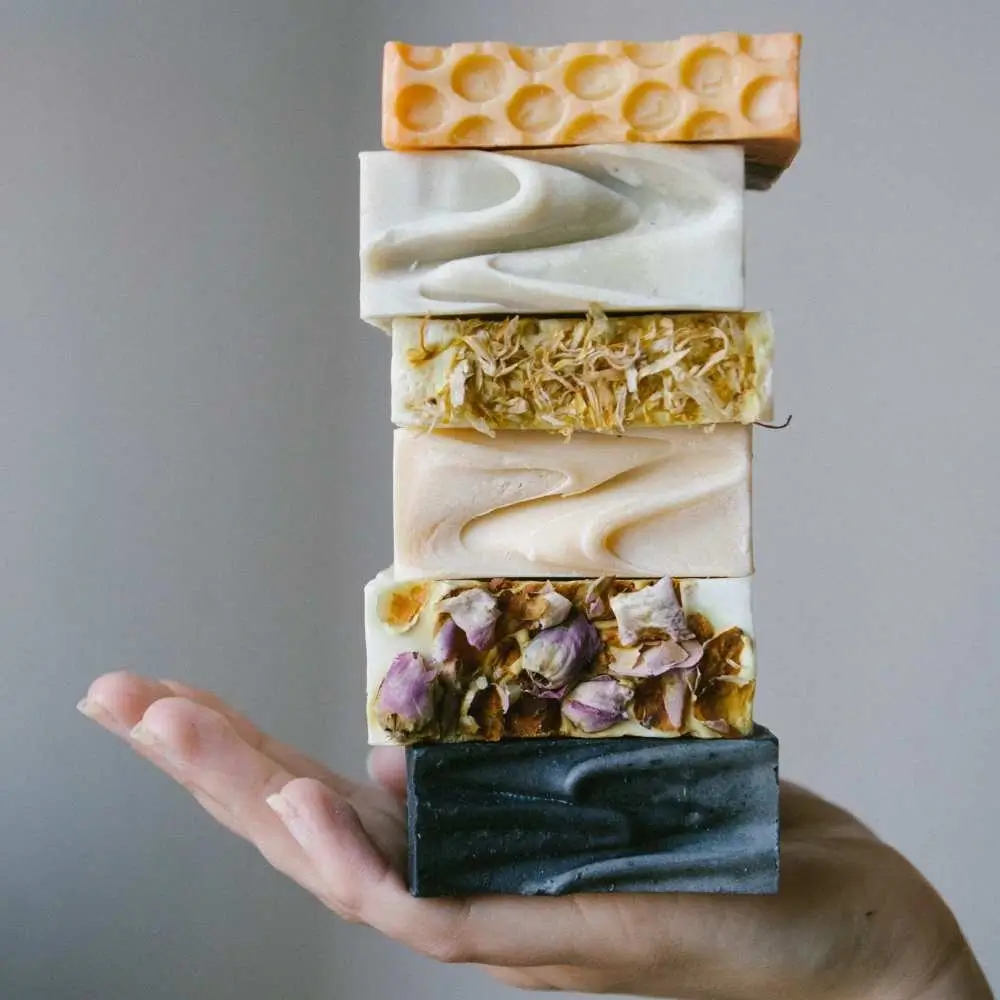
Shampoo Bars Unpacked: Your Burning Questions Answered!
If you're new to the world of shampoo bars, you might have some questions about what they are, how to use them, and which one is the best for you. Don't worry; we've got you covered with some frequently asked questions about the best shampoo bar.
What is a shampoo bar?
A shampoo bar is a solid bar of shampoo that comes in a range of scents and formulations. It is a more sustainable and eco-friendly option as it produces less waste and requires minimal packaging compared to traditional liquid shampoos. Shampoo bars contain natural ingredients that gently cleanse the hair and scalp while providing various benefits such as hydration and improving scalp health.
How do I use a shampoo bar?
Using a shampoo bar is pretty straightforward. Wet your hair and the bar, lather the bar in your hands or rub it directly onto your scalp and hair, massage the lather in your hair and scalp, and rinse out the shampoo thoroughly. You can follow up with a conditioner if necessary. For more detailed instructions, see our guide on how to use shampoo bars.
Which shampoo bar is the best for my hair type?
Choosing the best shampoo bar for your hair type and needs requires some experimentation and careful consideration. You should pick a formula suitable for your hair type, identify ingredients that work well with your hair, and consider other factors, such as fragrance, packaging, and price. For more information, see our guide on how to choose the right shampoo bar.

Are shampoo bars suitable for all hair types?
Yes, there is a shampoo bar that is suitable for all hair types. Different shampoo bars come in formulations that cater to specific hair types and scalp conditions. For instance, clarifying shampoo bars are ideal for oily hair, while moisturizing shampoo bars are perfect for dry hair. It's essential to read the labels and ingredient lists when selecting the best shampoo bar for your hair type.
How long does a shampoo bar last?
A shampoo bar can last up to three times longer than a bottle of liquid shampoo, depending on the size, quality, and brand. A small-sized shampoo bar, around 2-3 ounces, can last for up to a month or two, depending on how often you wash your hair. When not in use, store your shampoo bar in a dry place to prolong its lifespan.
Can I use a shampoo bar if I have color-treated hair?
Yes, there are shampoo bars available that are suitable for color-treated hair. Look for shampoo bars that are free of sulfates, parabens, and other harsh chemicals that can damage color-treated hair. A color-safe shampoo bar will gently cleanse your hair while protecting your hair color.







